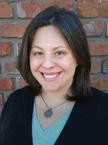
For many years, the United States Refugee Admissions Program was a minor government activity, quietly saving lives under the radar of public attention. With the rise of ISIS and this year’s combative presidential election cycle, it has become divisive, with powerful feelings among both those who consider it a vital humanitarian program, and those for whom security is paramount.
When the question is posed that way, charity vs. security, it is hard to know where to stand. However, when it comes to the question of resettling refugees in this country, we do not have to choose between our impulse to reach out to those who are suffering and our desire to protect our country, its citizens and our shared democratic values.
Over 50 percent of the 4.5 million Syrian refugees are children. Seventy-five percent of those children are under age 12. Some children, whose families fled the conflict in its early years, have never in their lives known a home of their own or had access to basic medical services or education. After five years of revolution and civil war, they have endured unthinkable hardship and are some of the most vulnerable, traumatized people on earth. A video has recently circulated of 5-year-old Omran, pulled from the rubble after his home in rebel-held territory was decimated by a government airstrike. It has shocked and saddened many around the world, but not the journalist who filmed it. For those on the ground in Syria, he says, the killing of children is so common that images like this are no longer surprising.
If Omran and his family ever wanted to seek shelter in the U.S., they would have to leave Syria for a United Nations-run refugee camp in Jordan. They would apply for refugee status, requiring them to prove they were persecuted because of race, religion or political opinion. They would undergo a rigorous 20-step security screening including biographic and biometric checks and in-person interviews with State Department and Homeland Security personnel. They would be subject to medical checks for contagious diseases. After a minimum of two years, perhaps they would be lucky enough to become one of the less than a tenth of 1 percent of Syrian refugees who are granted legal entry into the United States.
The U.S. Refugee Admissions Program is an organized, and very modest, approach to a massive global problem. No masses of unknown people are arriving in our country by foot or by boat. War-weary families, vetted by the highest levels of security our country has to offer, are grasping for a solution that will give their children some chance at a future.
As Jews, we have a special connection to the refugee program. Yes, in a religious sense, as we are called upon to welcome the stranger, to repair the world, but also in a historical sense. The United Nations High Commission on Refugees, which today governs the international refugee program, was founded in 1951 as a direct response to the experience of displaced European Jews. Its founders wanted to ensure that the world had a way to provide a chance at a safe and secure future to those who are persecuted and displaced by war.
JVS is proud to carry out this work, resettling refugees from Syria and 12 other countries. We help families address their health care needs, enroll children in school and adults in English classes, and find jobs. Over 70 percent of families have at least one working adult within 120 days of arrival in the U.S. It is a feat of resiliency and determination worthy of our admiration to go — in just four months — from first setting foot in this country to being gainfully employed, paying taxes and providing for their families.
There are many things to fear in our world today. It is tempting to seek a concrete solution; ban refugees and we will be safe. That perspective is not only misguided, but dangerous. It will not increase our safety, but it will erode the values of compassion, human rights and leadership among nations that we hold dear, both as Jews and as Americans.
Hilary Singer is executive director of JVS.